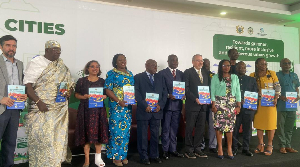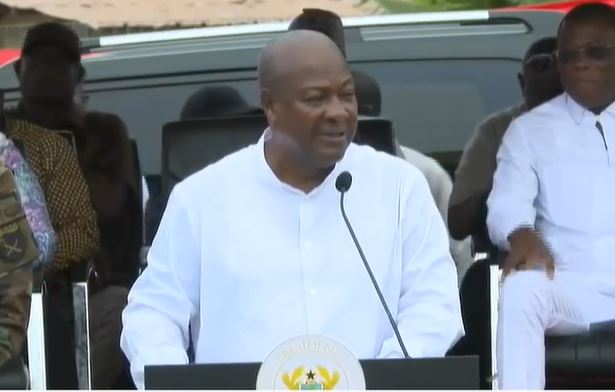Let us build cities that are inclusive, liveable for all -Minister
By Edward Dankwah
Accra, June 5, GNA – Mr Ahmed Ibrahim, the Minister of Local Government, Decentralisation and Religious Affairs, says there is the need to build cities that are inclusive, prosperous, green, and livable for all.
He said cities were not merely built environments, but living environments shaped by culture, heritage, and human values, hence, inclusive cities ensured that everyone regardless of gender, age, income level, ethnicity, or ability had equal access to opportunities, services, and spaces.
The Minister was speaking at the launch of the Ghana Sustainable Cities Strategy (GSCS), which was held in Accra.
Mr Ibrahim said due to urbanisation, over 56.7 per cent of the population resides in urban areas, and that this figure was expected to increase significantly to about 60.7 per cent by 2030.
He said the GSCS was not merely a strategic document but a national commitment and a blueprint that outlined how Ghana intends to reshape its urban landscape to meet the needs of today and prepare for the demands of tomorrow.
The Minister said the Strategy complemented the revised National Urban Policy (NUP), and together, they provided a coherent framework for guiding urban development, mobilising resources and building institutional capacity to shift the trajectory of urban growth in Ghana.
He said it was aligned with both continental and global development agendas, including the SDGs, particularly Goal 11, which enjoined all Member States, of which Ghana was no exception, to make cities and human settlements inclusive, safe, resilient, and sustainable.
“The Strategy is indeed grounded in robust data and analytics, drawing from the 2021 Population and Housing Census (2021 PHC), and a wealth of local research on urban issues,” he added.
Mr Ibrahim said sustainable urban development could not be achieved by government alone, but required a whole of society approach, the active participation of local authorities, traditional authorities and religious leaders, and communities or citizens themselves.
He said the Ministry was committed to ensuring that the Strategy was not left on the shelves, but worked closely with the National Development Planning Commission, and all stakeholders to mainstream the Strategy into development plans, investment programmes, and monitoring systems.
Mr Ibrahim encouraged the youth, whom he considers as the “architects of tomorrow’s cities” to be active participants in building the cities of tomorrow, cities that reflected aspirations, resilience, and shared values.
Mr Robert R. Taliercio, World Bank Division Director, said Ghana’s Infrastructure Plan (2019) estimated a staggering $37 billion was needed annually to build the infrastructure that supported economic growth and improved quality of life by 2047.
He said urban floods significantly impacted both people and infrastructure, disproportionately affecting informal settlements where 90 per cent of communities prone to flooding were located.
Mr Taliercio added that more than 5.5 million people in Ghana who lived less than one kilometer from the shoreline were vulnerable to coastal flooding.
He said given the rapid spatial expansion of Ghana’s cities and the continued development of informal settlements, current urban policies and their enforcement needed to be strengthened.
Mr Taliercio the role of traditional authorities in Ghana was crucial for sustainable land-use planning, notabing that 80% of all land in Ghana, including urban land, fell under customary ownership.
He said the World Bank stood ready to support the implementation of the GSCS, working together to ensure that Ghana’s urban areas grow in a way that was green, resilient, more inclusive, and prosperous for all.
GNA
Edited by Linda Asante Agyei









